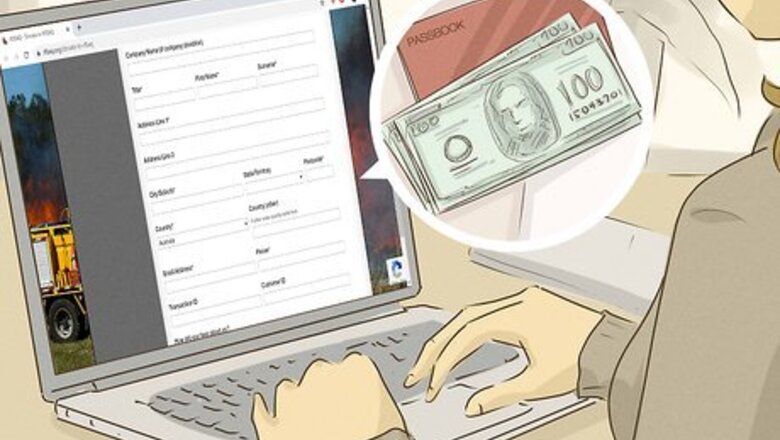
views
Supporting Firefighters, Wildlife, and Displaced Families
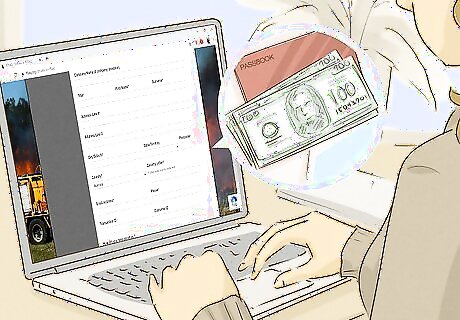
Donate to the fire brigades that are combating the wildfire. Most of the fire brigades who are out fighting the blaze are volunteer, and they need supplies and financial support. Fortunately, the fire brigades have set up their own fundraisers through their websites so you can give money directly to the firefighters to help them put out the bushfires. Support them here: Give money the NSW Rural Fire Service here: https://www.rfs.nsw.gov.au/volunteer/support-your-local-brigade Support the Victorian firefighters here: https://www.cfa.vic.gov.au/about/supporting-cfa Donate to the Rural Fire Brigades Association Queensland Inc. here: https://www.rfbaq.org/donate-to-rfbaq Support CFS volunteer firefighters here: https://cfsfoundation.org.au/donate

Help animals affected by the wildfire by giving to a rescue organization. You’ve probably been horrified to see the photos of hurt animals fleeing the fire, and it’s upsetting to see how many animals have perished. Fortunately, you can do something to help. Several animal welfare organizations are rescuing and rehabilitating animals affected by the fire. Donate to help them here: Royal Society for the Prevention of Cruelty to Animals (RSPCA): https://www.rspcansw.org.au/bushfire-appeal/ WIRES-Emergency Fund for Wildlife: https://www.wires.org.au/blog/emergency-donations-to-help-wildlife Port Macquarie Koala Hospital: https://www.wires.org.au/blog/emergency-donations-to-help-wildlife Zoos Victoria: https://www.zoo.org.au/fire-fund/ Kangaroo Island Wildlife Park: https://www.gofundme.com/f/help-save-kangaroo-islands-koalas-and-wildlifeTip: The koala bear may be in danger of extinction. However, organizations like Zoos Victoria and Kangaroo Island Wildlife Park are fighting to save the koala.

Give to charities who are helping families affected by the bushfires. With fires burning across Australia, many families have been forced to flee their homes. In some cases, they’ve lost everything. You can help them by donating to charities who are finding them a place to stay and will assist them with rebuilding their lives after the fires are in control. Support these agencies to help fire victims in their time of need: Give to the Victorian Bushfire Appeal, which gives all proceeds to victims, here: https://www.communityenterprisefoundation.com.au/make-a-donation/bushfire-disaster-appeal/ Give to the Australian Red Cross here: https://www.redcross.org.au/campaigns/disaster-relief-and-recovery-donate#donate Give to Direct Relief, an organization that has distributed over 400,000 N-95 masks to communities in smoke affected areas and have upped their commitment to send 1M, here: https://www.directrelief.org/emergency/australia-wildfires/ You can donate to the Salvation Army here: https://www.salvationarmy.org.au/donate/make-a-donation/donate-online/?appeal=disasterappeal Donate to the St. Vincent de Paul Society here: https://donate.vinnies.org.au/appeals-nsw/vinnies-nsw-bushfire-appeal-nsw
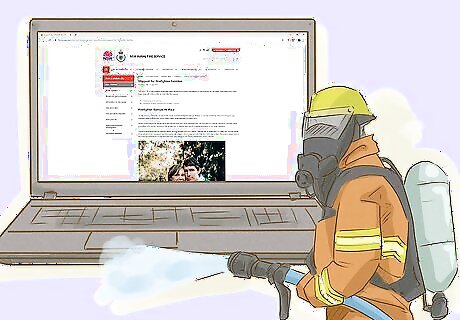
Support the families of firefighters who died fighting the blaze. Sadly, the bushfires have claimed lives, including those of at least 2 firefighters. If you want to help their families recover from this tragedy, donate directly to them through the fire brigade’s website. This will help the families rebuild their lives. Donate to the families of fallen firefighters here: https://www.rfs.nsw.gov.au/news-and-media/general-news/featured/support-for-firefighter-families
Taking Action to Help Australia
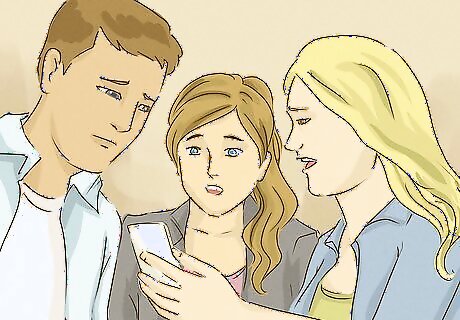
Educate others about the bushfires and how they can help. The bushfires began in September but are just now getting worldwide attention. You can help increase awareness and possible donations by spreading knowledge about the fires. Here are some ways you can educate others: Talk to the people you know. Post about the fire on social media. Share links so people can donate easily.
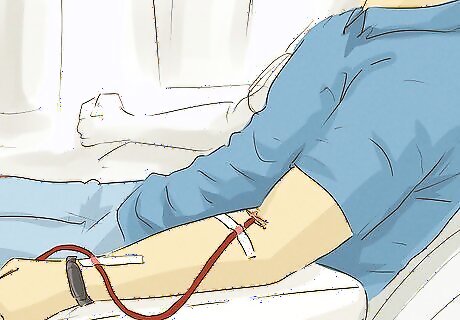
Donate blood through the Red Cross to help the injured. Unfortunately, some fire victims sustained injuries and are undergoing treatment. As a result, there’s a greater demand for blood donations. If you’re able to give blood, visit your local Red Cross donation center or attend a blood drive in your area. The Red Cross is helping meet the blood donation need in Australia. Find out where you can donate here: https://www.redcross.org/give-blood.html
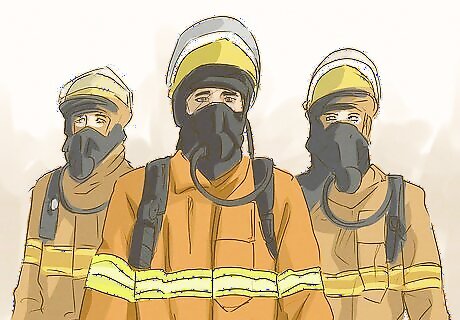
Volunteer to go fight the fire if you’re a trained firefighter. Australia is welcoming firefighters from other countries, like the United States and Canada, who can help control the blaze. However, you can only volunteer to help if you’re trained as a firefighter. If you are qualified and want to help, talk to your supervisor about joining the effort. Currently, crews of firefighters are traveling from abroad to work alongside Australia's fire brigades. You may be able to join a crew through your local firehouse.
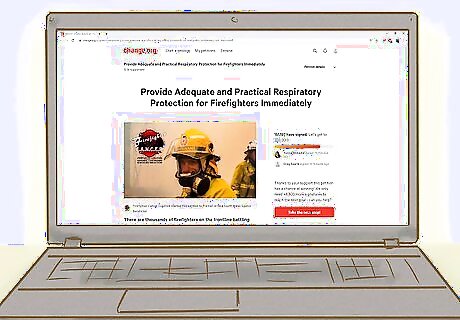
Sign a petition that supports aid for Australia. Research the available petitions until you find one that you support and believe in. There are many options, including a petition asking lawmakers to declare the fires a national emergency so more resources can be dedicated to this crisis. As another example, many firefighters don’t have proper respiratory equipment to protect them from the harmful bushfire smoke. Signing a petition from change.org encouraging the government to give them protective gear could help protect the health of the brave firefighters who are trying to control the blaze.
Helping While in Australia
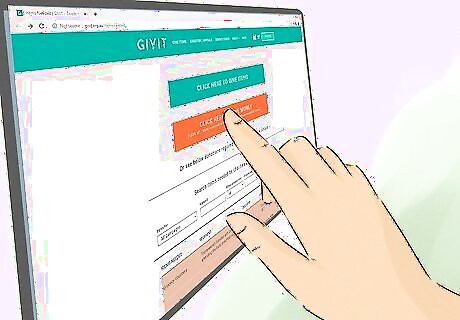
Donate money if you live in Australia. Things are unhelpful when they arrive unsolicited and end up being stockpiled in places people and animals need to live and shelter in. Many donated goods end up spoiled, soiled or rerouted to city charity stores, which is wasteful of people's time, effort and money. Stick to donating money unless there is a specific appeal from a reputable charity and even then, only donate what they've requested. Here’s a charity that’s currently collecting relevant items actually requested by fire victims: http://www.givit.org.au/items-needed.
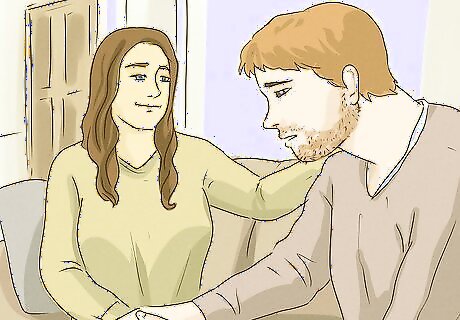
Open your house to people who have nowhere to live. Provide space for people to live rent-free while they get back on their feet. Or, fund a long-term accommodation placement for people as they rebuild. After the disaster is when the real impact hits, long-term and people recovering require living space. Perhaps you have a spacious caravan, tiny house, demountable building you could put out for long-term loan. Send out a message to a local community that it is available to a family, individual or group in need of housing.
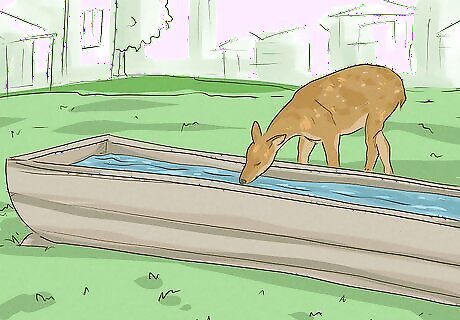
Leave out water for animals who are fleeing the bushfires. Wild animals whose habitats are on fire are trying to escape to safety. Often, they are thirsty, dehydrated, and injured. Help them by placing containers of fresh water outside your home so they can take a drink or bath. Replace the water once or twice a day so it's fresh and full. Check for wildlife around the water container before you approach it, just to be safe. You don’t want to surprise an injured animal that might become aggressive.Tip: Keep your pets indoors for the duration of the wildfires so they don’t come into contact with wild animals who are fleeing. Startled pets may bite or scratch injured wildlife, which can worsen their injuries.
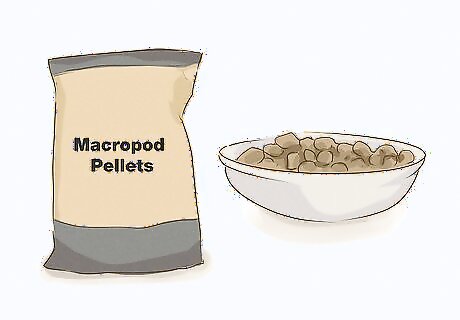
Put out Macropod Pellets for food if there’s no vegetation in your area. It’s typically not safe to leave out food for wild animals because you don’t know what animal might eat it. However, the animals may have no food if there's no vegetation. The safest food to leave for them is Macropod Pellets. Place the pellets in a dish several yards away from your home. This will give fleeing animals a food sources as they run from the bushfires. You can buy Macropod Pellets at a feed store, vet's office, or online.
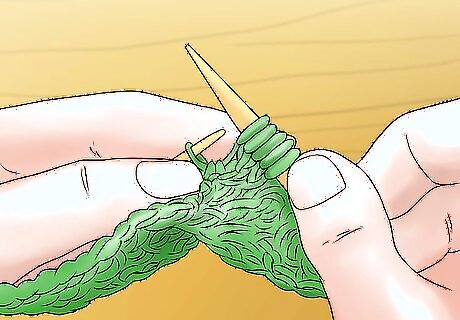
Get crafting. If you're skilled at sewing, knitting, crochet or you just have a fabric stash to share, you can get involved with organisations such as the Animal Rescue Craft Guild, the Agile Project, Cairns Create It and other groups to make pouches for joeys, blankets for animals in need, koala mittens and bat wraps. Contact the groups directly or via their Facebook pages to find out how you can contribute. Even if you aren't great at making craft, you can donate old sheets, general fabric, old towels, etc., that can be turned into bedding and other items for injured/rehoused wildlife and pets.
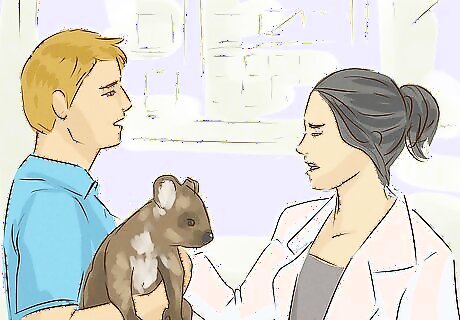
Take injured wildlife that you find to a vet immediately. While it’s generally best to avoid approaching wild animals, you may encounter an injured animal that needs help. If you do, don’t touch it with bare hands. Wear gloves and sleeves while handling the animal, and wrap it in a blanket or towel. Transport the animal to a vet immediately for care. You can try calling an animal rescue agency, but they’re currently stretched very thin. You can likely get the animal help faster by taking it yourself.



















Comments
0 comment